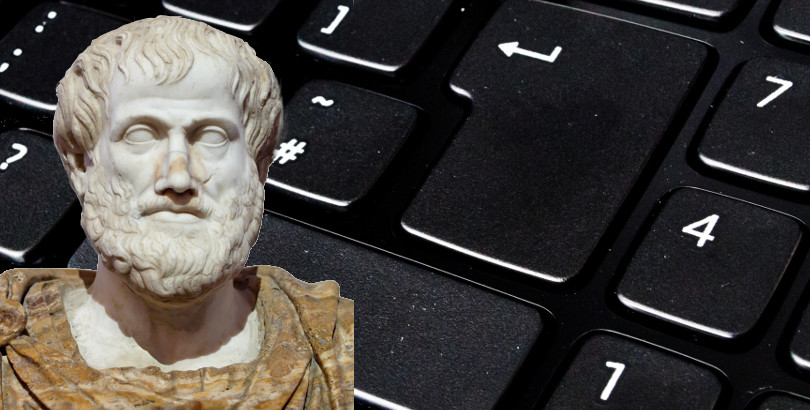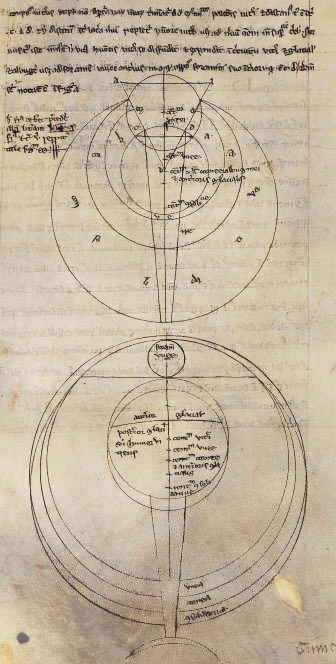Don’t worry; this week’s entry is not about America’s favorite pork-related product (seriously there exists bacon-flavored candy). It’s about the scientific method. Not the whole thing, of course, as that would take volumes and volumes of text and would be outdated and maybe obsolete by the time it was finished. No, this column is about two men who are considered by science historians to have contributed substantially to the scientific method and the philosophy of science. And it just so happens that both of them bore the last name of Bacon.
Roger Bacon was born somewhere around 1214 (give or take – time and record keeping then, as now, was hard to do) in England. Roger became both an English philosopher of note and a Franciscan friar. Most of the best scholastic philosophers of the Middle Ages were monks, and in taking Holy Orders, Bacon falls amongst the ranks of other prominent thinking religious, including Robert Grosseteste, Albert Magnus, Thomas Aquinas, John Duns Scotus, and William of Ockham.
It seems that the cultural milieu of that time was planting the intellectual seeds for the scientific and artistic renaissance that followed. Roger Bacon cultivated modes of thought that would be needed for the advances to come. Basing his philosophy on Aristote, he advocated for the following ‘modern’ ideas:
- Experimental testing for all inductively derived conclusions
- Rejection of bling following of prior authorities
- Repeating pattern of observation, hypothesis, and testing
- Independent corroboration and verification
In addition, he wrote extensive on science, both its general structure and on specific applications. Among his particular fields of interest was optics, where his diagrams have the look and feel of the modern experimental lab notebook.
He also criticized the Julian day and argued for dropping a day every 125 years. This system would not be adopted until about 300 years after his death with the creation of the Gregorian calendar in 1582. He was almost an outspoken supporter experimental science saying that it had three great prerogatives over other sciences and arts in that:
- It verifies all of its conclusions by direct experiment
- It discovers truths which can’t be reached without observation
- It reveals the secrets of nature
Francis Bacon was born in 1561 in England. He was a government official (Attorney General and Lord Chancellor) and a well-known philosopher. His writings on science and philosophy established a firm footing for inductive methods used for scientific inquiry. The details of the method are collectively known as the Baconian Method or the scientific method.
In his work Novum Organum (literally the new Organon referring to Aristotle’s work on metaphysics and logic), Francis has this to say about induction:
By induction, he meant the careful gathering of data and then refinement of a theory from those observations.
Curiously, both Bacons talk about four errors that interfere with the acquisition of knowledge: Roger does so in his Opus Majus; Francis in his Novum Organum. The following table makes an attempt to match up each’s list.
| Roger Bacon’s Four Causes of Error | Francis Bacon’s Four Idols of the Mind |
|---|---|
| Authority (reliance on prior authority) |
Idols of the Theater (following academic dogma) |
| Custom | Idols of the Tribe (tendency of humans to see order where it isn’t) |
| Opinion of the unskilled many | Idols of the Marketplace (confusion in the use of language) |
| Concealment of ignorance behind the mask of knowledge | Idols of the Cave (interference from personal beliefs, likes, and dislikes) |
While not an exact match, the two Baconian lists of errors match up fairly well, which is puzzling if historic assumption that Francis Bacon had no access to the works of Roger Bacon is true. Perhaps the most logical explanation is that both of them saw the same patterns of error; that human kind doesn’t change its fundamental nature in the passage of time or space.
Or perhaps Francis is simply the reincarnation of Roger, an explanation that I am positively sure William of Occam would endorse if he were alive today…

